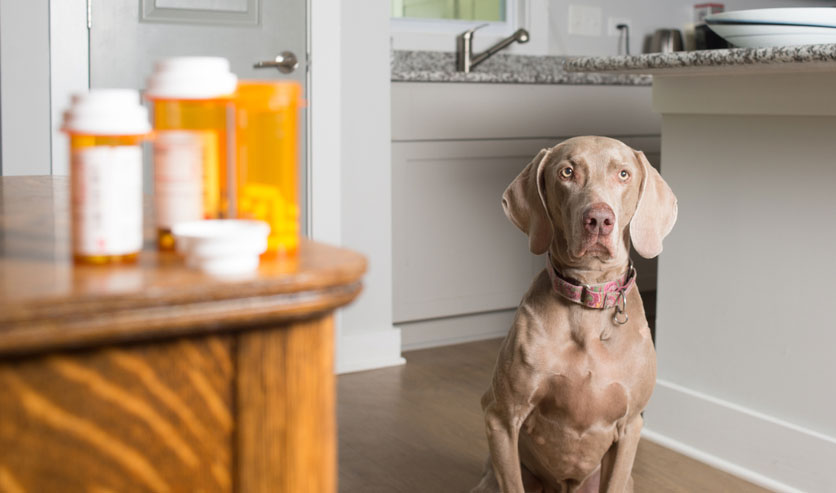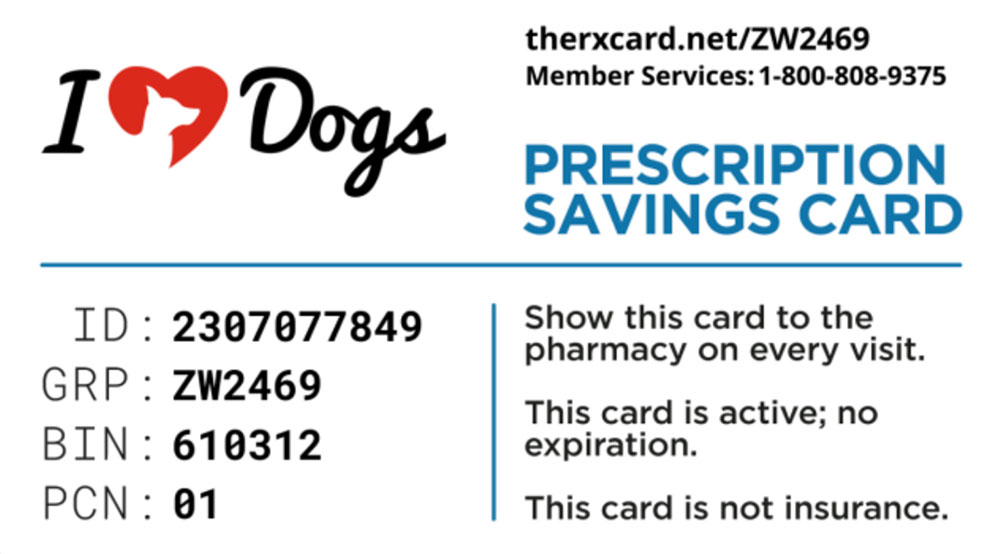Are you looking for a way to save your dog’s Vancomycin prescription? Our Rx Discount Card for Pets can save you up to 80% of your pet’s Vancomycin.
What Pharmacies Accept This Vancomycin Coupon Card for Pets?
This card is accepted at over 60,000 participating pharmacies in the US, including:
How Much Will My Pet’s Vancomycin Cost Using This Coupon?
In order to view a real-time pricing estimate, please use our pricing lookup tool here.
How Do Prescription Discount Cards for Pets Work? How Can It Help Me Save On My Dog’s Vancomycin Prescription?
Prescription discount cards for pets work in much the same way as those for humans. They are designed to provide discounted prices for medications, sometimes significantly lower than the retail price. These cards are often free and can be used at various participating pharmacies.
Here’s how they generally work:
- Get a card: You can usually obtain a prescription discount card for pets for free from various providers online.
- Find a pharmacy: Look for a pharmacy that accepts your discount card. Many major pharmacies and some online pharmacies accept these cards.
- Present your card and prescription: When you go to the pharmacy, present your prescription and the discount card. The pharmacist will then use the information on the card to apply a discount to your pet’s medication.
- Pay for the prescription: You’ll then pay for the prescription at the discounted rate.
For the Vancomycin prescription, the discount card may help you save money depending on the pricing at your chosen pharmacy. However, please note that not all medications are covered by all discount cards. Also, savings can vary widely depending on the card and the pharmacy. It’s also crucial to mention that these discount cards are not a substitute for pet insurance.
Before using a discount card, it’s a good idea to do the following:
- Check the terms and conditions of the card to understand what is covered.
- Compare the discounted price with the price your pet’s insurance (if applicable) would cover.
- Verify that your chosen pharmacy accepts the card.
- Confirm that Vancomycin is covered by the discount card.
Remember, Vancomycin is a potent antibiotic usually used in severe cases, and its use should be monitored by a veterinarian. It might also be expensive and not commonly prescribed for pets, hence it may not be included in the standard discount card program.
What Are Some Common Reasons Vancomycin is Prescribed for Dogs?

Some of the most common reasons why vancomycin is prescribed for dogs include:
-
- Skin infections, such as pyoderma and abscesses
- Sepsis, which is a life-threatening condition caused by the spread of bacteria throughout the bloodstream
- Infections of the heart valves, lungs, and urinary tract
- Infections caused by antibiotic-resistant bacteria, such as methicillin-resistant Staphylococcus aureus (MRSA)
- Clostridium difficile colitis, a type of diarrhea caused by a bacteria that can grow in the intestines after antibiotic treatment
Vancomycin is usually administered by intravenous infusion, but it can also be given orally in some cases. The dosage and frequency of administration will vary depending on the severity of the infection and the dog’s weight.
Vancomycin is generally safe for dogs, but it can cause side effects such as vomiting, diarrhea, and kidney damage. It is important to monitor your dog closely for any side effects while they are taking vancomycin.
If you have any questions about vancomycin or its use in dogs, please talk to your veterinarian.
What Are Some Other Ways I Can Save Money on My Pet’s Vancomycin Prescription?
Here are some additional ways you can potentially save money on your pet’s Vancomycin prescription:
- Comparison Shopping: Different pharmacies can charge different prices for the same medication, so it may be worthwhile to compare prices at different pharmacies. Don’t forget to check online pharmacies, but be sure they are reputable and certified.
- Manufacturer Discounts or Rebates: Sometimes, drug manufacturers offer discounts or rebates for their medications. It’s worth checking the manufacturer’s website or contacting them directly to see if they offer any such programs.
- Veterinary Clinics or Schools: Some veterinary schools or clinics offer services at reduced rates. They may also have programs that provide discounted medications.
- Assistance Programs: There are some nonprofit organizations and charities that may be able to provide financial assistance for pet medications.
- Ask for Generic Versions: If a generic version of the medication is available, it can often be cheaper than the brand-name version. However, always consult with your vet before switching to a generic, as not all generics are equivalent to their brand-name counterparts.
- Buying in Bulk: If your pet needs long-term medication, it may be cheaper to buy in larger quantities. Ask your vet if this is an option.
Remember to always consult with your vet about any potential changes to your pet’s medication or treatment plan. They can provide advice that takes into account your pet’s specific needs and circumstances.


 Toledo, United States.
Toledo, United States.